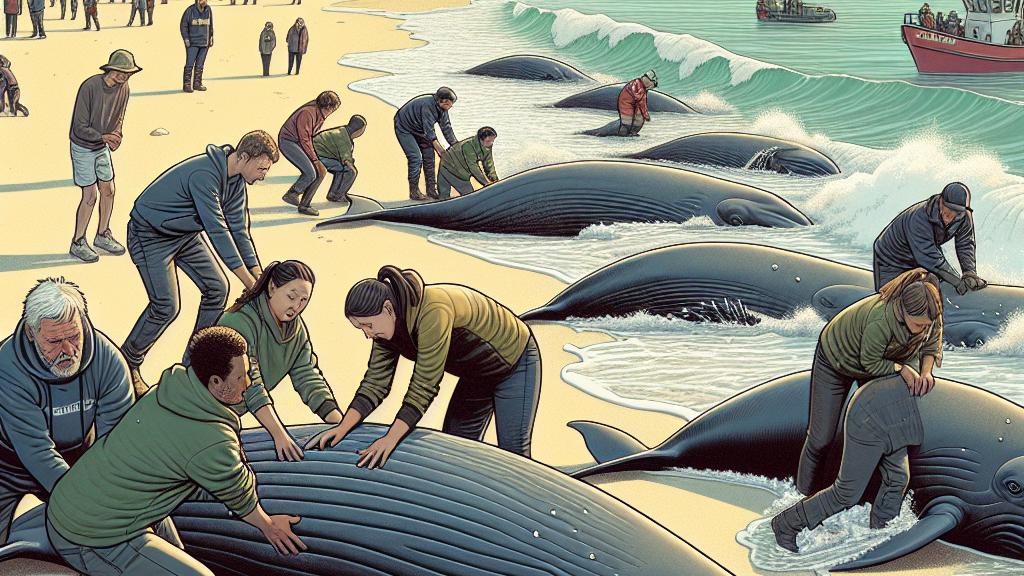Compassionate Rescue of Stranded Whales in New Zealand
Overview
- In a remarkable display of solidarity, over 30 pilot whales stranded on Ruakākā Beach were rescued by dedicated locals and conservation workers.
- Tragically, four whales lost their lives despite intense rescue efforts, highlighting the ongoing threats to marine wildlife.
- New Zealand's unique coastal geography is a major factor in whale strandings, with more than 5,000 incidents recorded since 1840.

The Stranding Incident
On November 24, 2024, the pristine sands of Ruakākā Beach in Northland, New Zealand, were suddenly filled with a mix of panic and determination. Over 30 pilot whales found themselves stranded, and the alarm spread quickly among beachgoers. Without hesitation, a wave of compassion swept through the community as locals and conservation workers joined forces. They creatively used large sheets to lift the whales, carefully maneuvering them into the water one at a time. It was a heartwarming scene that showcased human kindness and teamwork. Yet, in the midst of this heroic effort, four whales succumbed to the ordeal, serving as a poignant reminder of the vulnerabilities faced by these majestic beings in a world where they often find themselves in peril.
Community and Cultural Response
The response to the stranding was nothing short of extraordinary. Hundreds of individuals from the community converged at the beach, each person driven by a shared sense of responsibility for the marine creatures. Joel Lauterbach from the Department of Conservation expressed profound admiration, saying, "It’s truly inspiring to witness such dedication." Furthermore, this event intertwined with New Zealand's rich Māori culture, where whales are revered as 'taonga' or sacred treasures. In honor of the lives lost, a ceremonial farewell was conducted, emphasizing the deep-seated respect that the community has for these animals. Such rituals not only demonstrate cultural significance but also cultivate a greater awareness of marine life.
Understanding Whale Strandings
New Zealand is notorious for whale strandings, having recorded an astonishing 5,000 incidents since the 1840s. The geography of the islands—with their numerous shallow beaches and abrupt coastlines—often confuses pilot whales that rely heavily on echolocation for navigation. Although researchers continue to explore the underlying causes of these strandings, the recent episode at Ruakākā Beach sheds light on the importance of community involvement in marine conservation. The swift and organized response of local residents highlights their commitment to protecting these magnificent animals and underscores the urgency of educating the public about marine wildlife. By fostering a deeper appreciation for our oceans and the beings that inhabit them, we can work together towards preserving the delicate balance of marine ecosystems and reducing the likelihood of future strandings.

Loading...